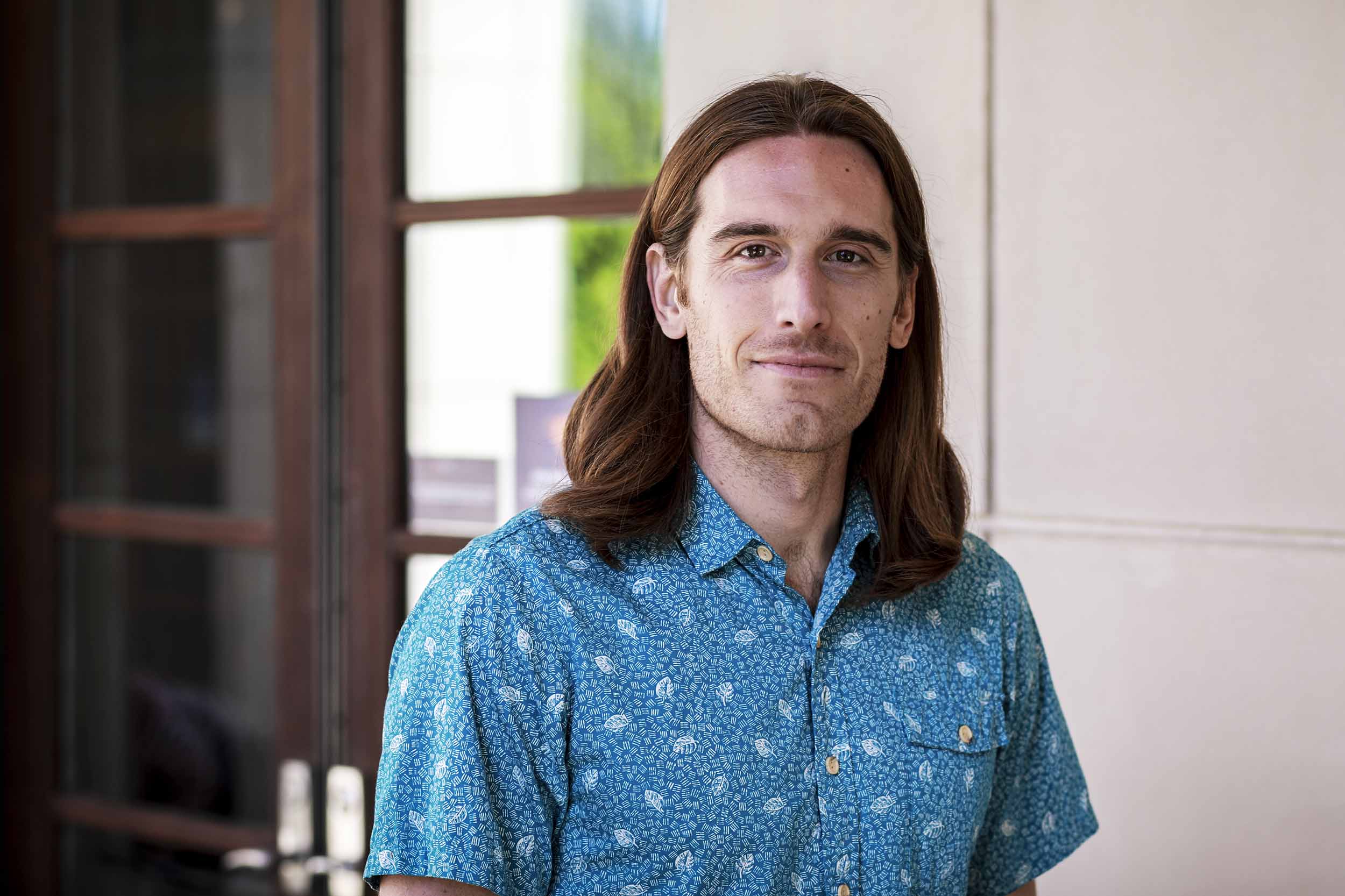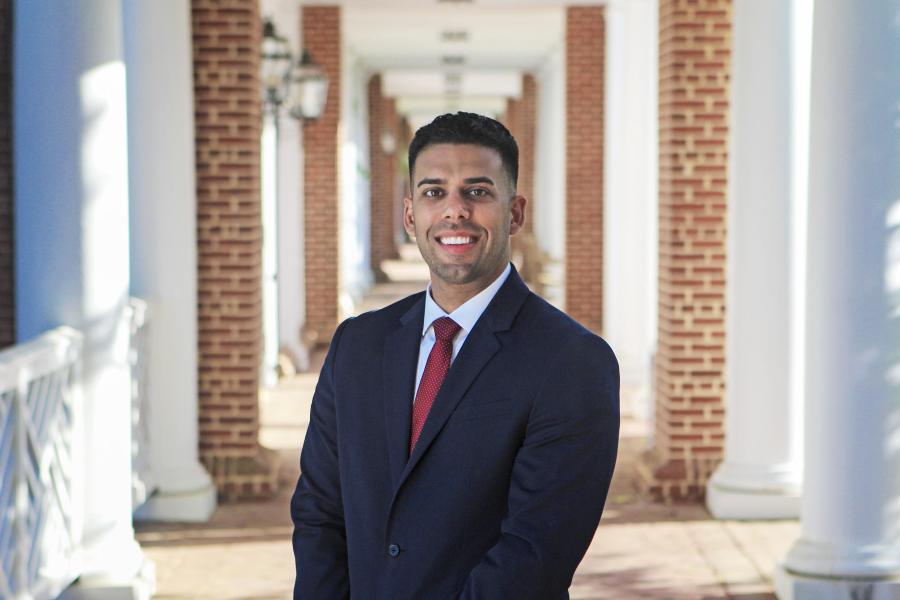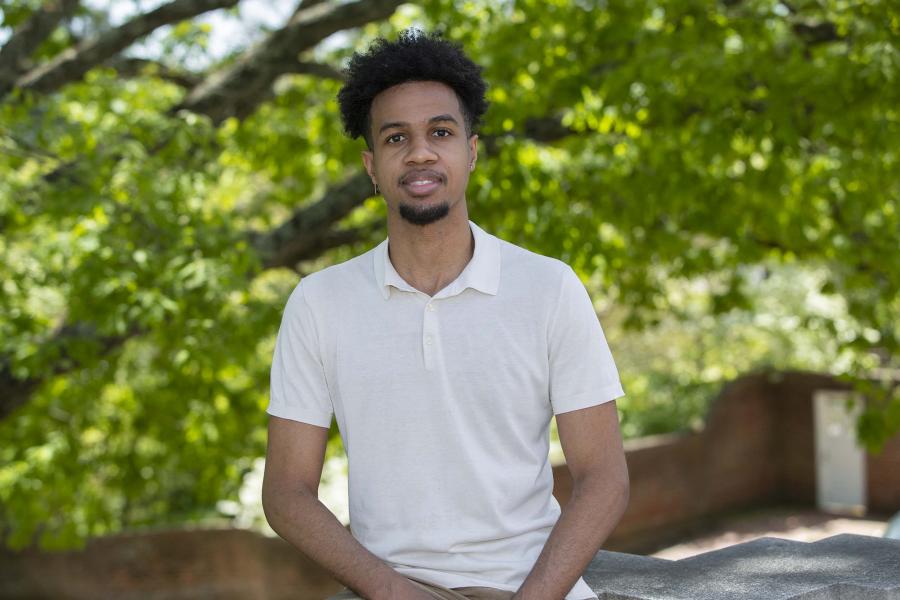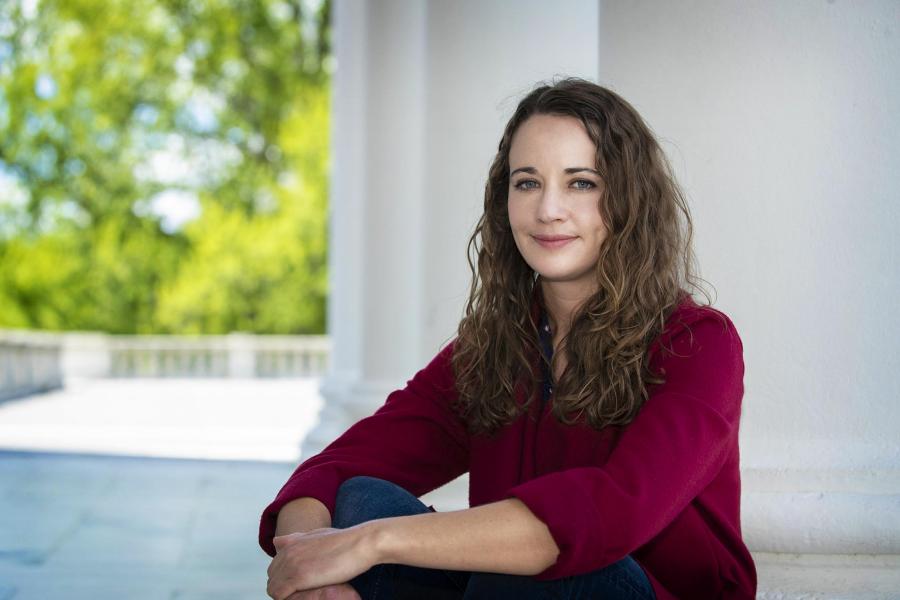Dominique Fenton holds a distinction not many law students can claim: Before he entered law school, he served as a judge.
When Fenton later decided to pursue a law degree to complement his knowledge and advance his public interest goals, he chose the University of Virginia School of Law, from which he’ll graduate May 23.
“I came into law school with a pretty clear sense of why I was here,” he said. “Ultimately, it was about doing right by the people that got me to this place: my family, my loved ones, and the clients and communities I served in various capacities before I came to Charlottesville.”
Fenton’s path to becoming a judge, and now a lawyer, began after graduating from Yale University in 2010 with a degree in history. He first worked in New York’s media industry, including as an editorial assistant to Arianna Huffington at The Huffington Post and as an intern on “The Colbert Report.”
“It felt like I was doing the things I should be doing to fit in with a demographic my college education primed me to be a part of,” he said. “But at the end of the day, it didn’t feel right.”
So he sought a job in which he could better people’s lives more directly. He landed an interview for an investigator position at The Bronx Defenders, an organization that he admittedly didn’t know much about at the time.
He would end up working there for three years, and that time would have a profound impact on his career trajectory.
Across the nation, professional backgrounds differ for those who do the investigative fact-finding work that informs court cases. But at The Bronx Defenders, at least, being less experienced isn’t necessarily considered a drawback, he said.
“They look for people who are good on their feet and can talk to anybody,” he said. “At its core, the job involves showing up in folks’ lives during incredibly difficult moments, so being genuine and thoughtful goes a long way.”
Fenton rose in his department and was soon training others. But he began to think about how public interest resources are often more plentiful in urban centers – The Bronx Defenders has no shortage of qualified applicants, for example – and less so in more rural parts of the country. He wondered if he could transfer his skills to a more underserved community.












